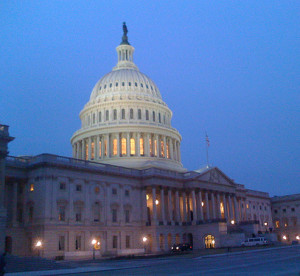Trade Promotion Authority legislation was introduced in the House and Senate today. The full text is available here.
Trade Promotion Authority lets Congress set trade negotiating objectives for the executive branch, and in return, the legislature agrees that it will not amend any deal reached by trade negotiators. As Public Citizen notes in its press release, this “circumvent[s] ordinary congressional review, amendment and debate procedures” in order to rush the final acceptance legislation.
The trade negotiating objectives relating to intellectual property (pasted in below) are identical to the objectives found in last year’s bill, which failed to gain any momentum on the Hill.
Today’s bill is highly controversial, and is the fight over its passage is expected to be a tough one. This Politico story is a good read for more on the expected efforts to block/pass the bill.
Here is the section that gives USTR negotiating objectives for intellectual property:
BIPARTISAN CONGRESSIONAL TRADE PRIORITIES AND ACCOUNTABILITY ACT OF 2015:
5) INTELLECTUAL PROPERTY.—The principal negotiating objectives of the United States regarding trade-related intellectual property are—
(A) to further promote adequate and effective protection of intellectual property rights, including through—
(i)(I) ensuring accelerated and full implementation of the Agreement on Trade-Related Aspects of Intellectual Property Rights referred to in section 101(d)(15) of the Uruguay Round Agreements Act (19 U.S.C. 3511(d)(15)), particularly with respect to meeting enforce20
ment obligations under that agreement; and
(II) ensuring that the provisions of any trade agreement governing intellectual property rights that is entered into by the United States reflect a standard of protec1 tion similar to that found in United States law;
(ii) providing strong protection for new and emerging technologies and new methods of transmitting and distributing products embodying intellectual property, including in a manner that facilitates legitimate digital trade;
(iii) preventing or eliminating discrimination with respect to matters affecting the availability, acquisition, scope, maintenance, use, and enforcement of intellectual property rights;
(iv) ensuring that standards of protection and enforcement keep pace with technological developments, and in particular ensuring that rightholders have the legal and technological means to control the use of their works through the Internet and other global communication media, and to prevent the unauthorized use of their works;
(v) providing strong enforcement of intellectual property rights, including through accessible, expeditious, and effective civil, administrative, and criminal enforcement mechanisms; and
(vi) preventing or eliminating government involvement in the violation of intellectual property rights, including cyber theft and piracy;
(B) to secure fair, equitable, and nondiscriminatory market access opportunities for United States persons that rely upon intellectual property protection; and
(C) to respect the Declaration on the TRIPS Agreement and Public Health, adopted by the World Trade Organization at the Fourth Ministerial Conference at Doha, Qatar on November 14, 2001, and to ensure that trade agreements foster innovation and promote access to medicines





